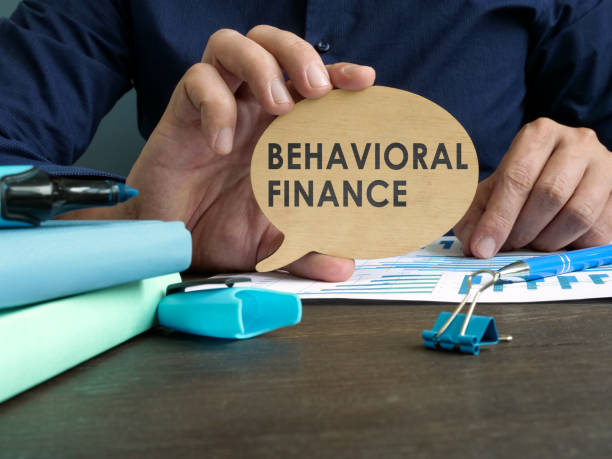In today’s we discuss Behavioral Economics and Public Policy complex socioeconomic environment, one needs a thorough understanding of human behavior to develop public policy effectively. Politicians who want to have a positive impact on public policy have found that behavioral economics, which draws from both psychology and economics, has become an invaluable resource in recent years.
In order to develop interventions that encourage people to make better choices, policymakers can benefit from behavioral economics’ understanding of decision-making processes, which takes into account the fact that people aren’t always logical. This article examines the connection between behavioral economics and public policy, providing insight into how the two fields might collaborate to bring about positive social change.
Getting to Know Behavioral Economics and Public Policy

Behavioral economics challenges the long-held belief that people always act rationally and in their own self-interest in the free market economy. Instead, human behavior is influenced by cognitive biases, social norms, and emotional responses. By looking at these patterns of behavior, economists gain a deeper understanding of the factors that influence people’s choices and the complexity of decision-making.
public policy function
Behavioral Economics and Public Policy is to determine the outcomes for society by regulating actions, providing incentives, and disseminating information. Policymaking has been based on the idea that rational decision-making is possible for a long time. If policy interventions are to be effective, they must take into account people’s irrational tendencies, according to behavioral economics.
In behavioral economics, the concept of creating interventions to encourage desired behaviors without limiting people’s autonomy is known as “nudging.” Encouraging More Beneficial Decisions Making a change to the default setting, providing prompt feedback, or taking advantage of established social norms are all examples of nudges. Nudges can be used by policymakers to encourage people to do things that will benefit them in the long run, like saving for retirement or starting a healthier lifestyle.
Mastering the Art of Cognitive Bias
Present bias and loss aversion are two common cognitive biases that cause people to make poor decisions. Public policies based on behavioral economics attempt to reduce these biases by structuring choices in ways that overcome irrational tendencies. If, for instance, information is presented in a particular manner or the procedures for making decisions are simplified, people can make better decisions without relying solely on willpower.
Behavioral Insights for Policy Development
Experiments are necessary to learn how people respond to various interventions in order to incorporate behavioral insights into policy design. Testing various strategies is the most effective method for policymakers to influence behavior. Evidence-based policymaking is possible by iteratively refining interventions in light of real-world outcomes.
Relevance to Health Promotion
Behavioral Economics and Public Policy may have a lot to teach public health policy, particularly in the areas of encouraging people to quit smoking, raising vaccination rates, and giving priority to preventative care. Policymakers must comprehend the psychological factors that influence health-related decisions in order to improve behavior. Offering incentives for gym memberships or using social pressure to encourage regular screenings is one way to improve population health outcomes.
Taking Care of the Environment Policymakers
all over the world face the pressing issue of climate change and environmental degradation. Using behavioral economics, it is possible to gain a deeper comprehension of consumers’ environmental-related actions and choices.
Policies like carbon pricing systems and eco-friendly default options are examples of policies that use behavioral insights to encourage individuals and businesses to engage in more environmentally friendly activities, which is good for the environment.
Advancement of Economic Security
People’s inability to make sound financial decisions is the root of issues like rising debt and a lack of savings. The study of behavioral economics offers suggestions for overcoming mental barriers to financial security and provides insight into these issues.
Better long haul monetary choices can be accomplished, for example, by furnishing buyers with custom-made monetary counsel or mechanizing their cooperation in retirement reserve funds plans.
Enhancing Educational Programs

When applied to the field of education, Behavioral Economics and Public Policy sheds light on students’ decision-making processes and classroom performance. Policymaking can be influenced by behavioral insights to increase student engagement, improve learning outcomes, and reduce attrition rates. Goal-setting, providing quick feedback, and utilizing peer influence are all methods that can increase the effectiveness of educational interventions.
Ethics Concerns
While nudges are a great way to motivate positive behavior change, they also raise ethical concerns regarding individual agency and control. Interventions must respect people’s autonomy, and policymakers must thoroughly examine the moral ramifications of pushing. Behavioral insights must be applied to public policy in a manner that is open, accountable, and voluntary.
conclusion
In a nutshell, brand-new insights from Behavioral Economics and Public Policy can help shape public policies that boost society’s well-being. Policymakers can develop interventions that encourage people to make better choices in a variety of areas, such as health, finances, education, the environment, and behavior and decision-making.
Ethical considerations must direct the application of behavioral insights in order to ensure that policies work while still respecting individuals’ autonomy. By incorporating behavioral economics into public policy, we might try to make a society that is more stable and wealthy for everyone.
Share via:
